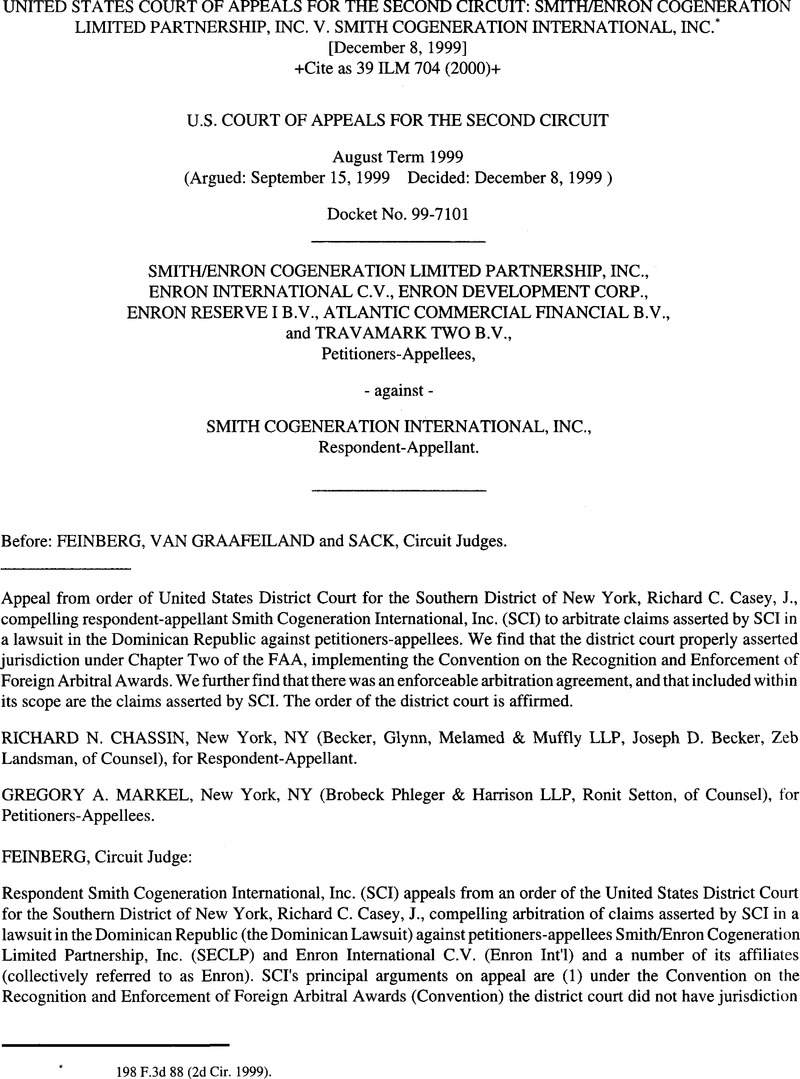No CrossRef data available.
Published online by Cambridge University Press: 27 February 2017

198 F.3d 88 (2d Cir. 1999).
* 198 F.3d 88 (2d Cir. 1999).
1 The principal of both SCD and SCI is the same person, Donald Smith.
2 According to the record before us, that arbitration took place in New York before the Honorable Abraham Sofaer. During the arbitration, SCD conceded Finven's rights under the Holding Partnership. Judge Sofaer awarded Finven $300,000 in attorney's fees which has not yet been paid by SCD.
3 SCI claims that diversity is lacking and Enron does not contest that point.
4 Section 201 provides: “The Convention on the Recognition and Enforcement of Foreign Arbitral Awards of June 10, 1958, shall be enforced in United States courts in accordance with this chapter.” The full text of the Convention may be found immediately following 9 U.S.C. §201
5 The United Kingdom, a signatory to the Convention, did not extend it to its dependencies, the Turks and Caicos Islands and the British Virgin Islands. See Note 28 to the Convention.
6 In McAllister Bros., Inc. v. A & S Transp. Co., 621 F.2d 519, 523 (2d Cir. 1980), we held that a claim of “abandonment” of a contract that had concededly been made between the parties should be decided by the arbitrator. It is thus arguable that SCI's claim that the 1994 Agreement superseded the previous Agreements is for the arbitrator to decide. However, the Enron petitioners do not press that contention, and we need not reach it as we find that Enron may compel arbitration under the 1994 Agreement.
7 We doubt our result would be any different were we to look at Texas law. The Texas Supreme Court has several times announced its pro-arbitration policy and the primacy of the FAA where an arbitration agreement provides that it is governed by both Texas law and the FAA. See, e.g., EZ Pawn Corp. v. Mancias, 934 S.W.2d 87, 90-91 (Tex. 1996)(applying the FAA to question of waiver of arbitration).
8 Of course, two of the Enron petitioners (ACF and ER) did sign the 1994 Agreement, but later assigned their interests to two other Enron affiliates, EDR and EDRO.
9 SCD was the only “Smith Cogeneration” signatory on the 1993 Agreement. SCI was a signatory on the Project Agreement and the 1994 Agreement.